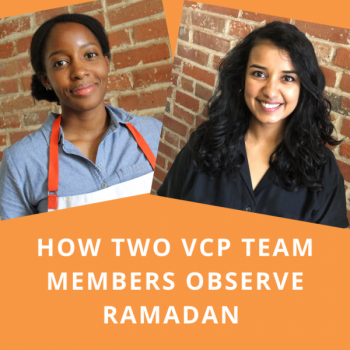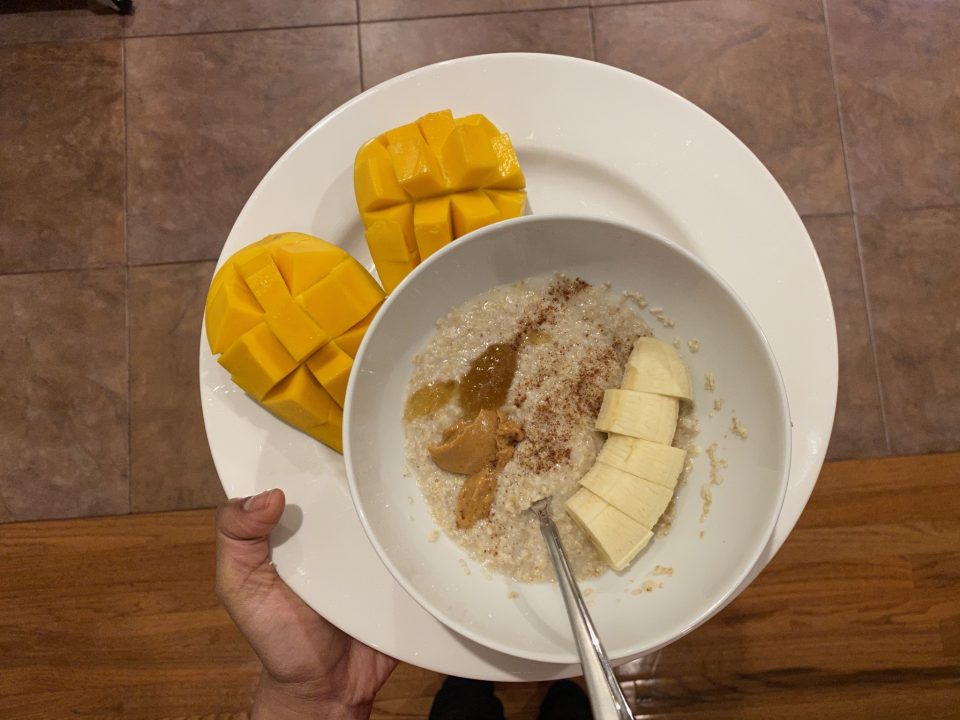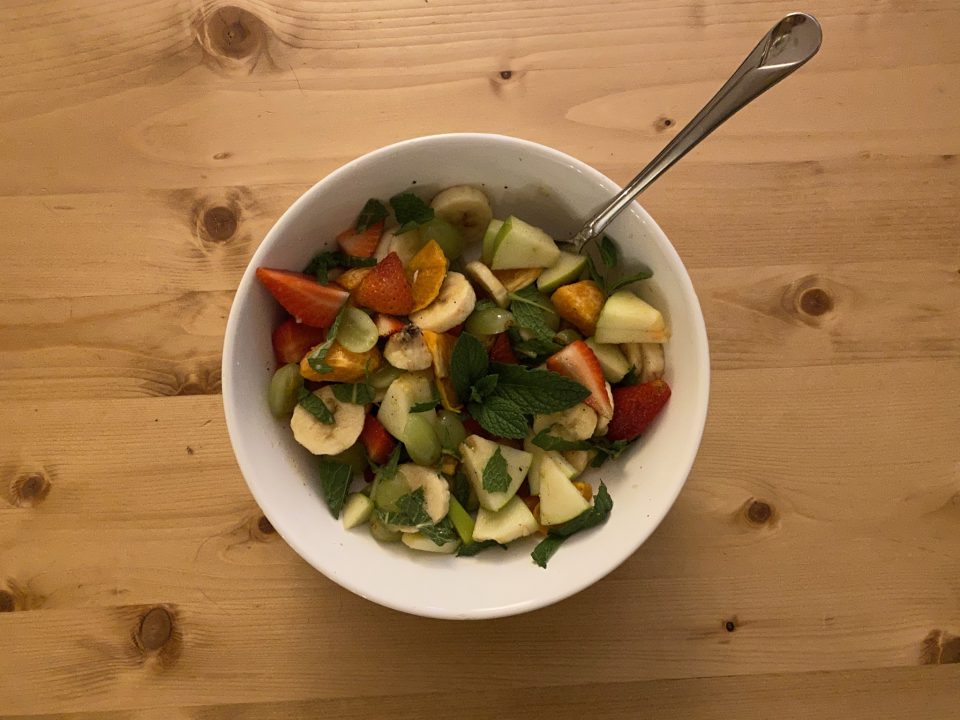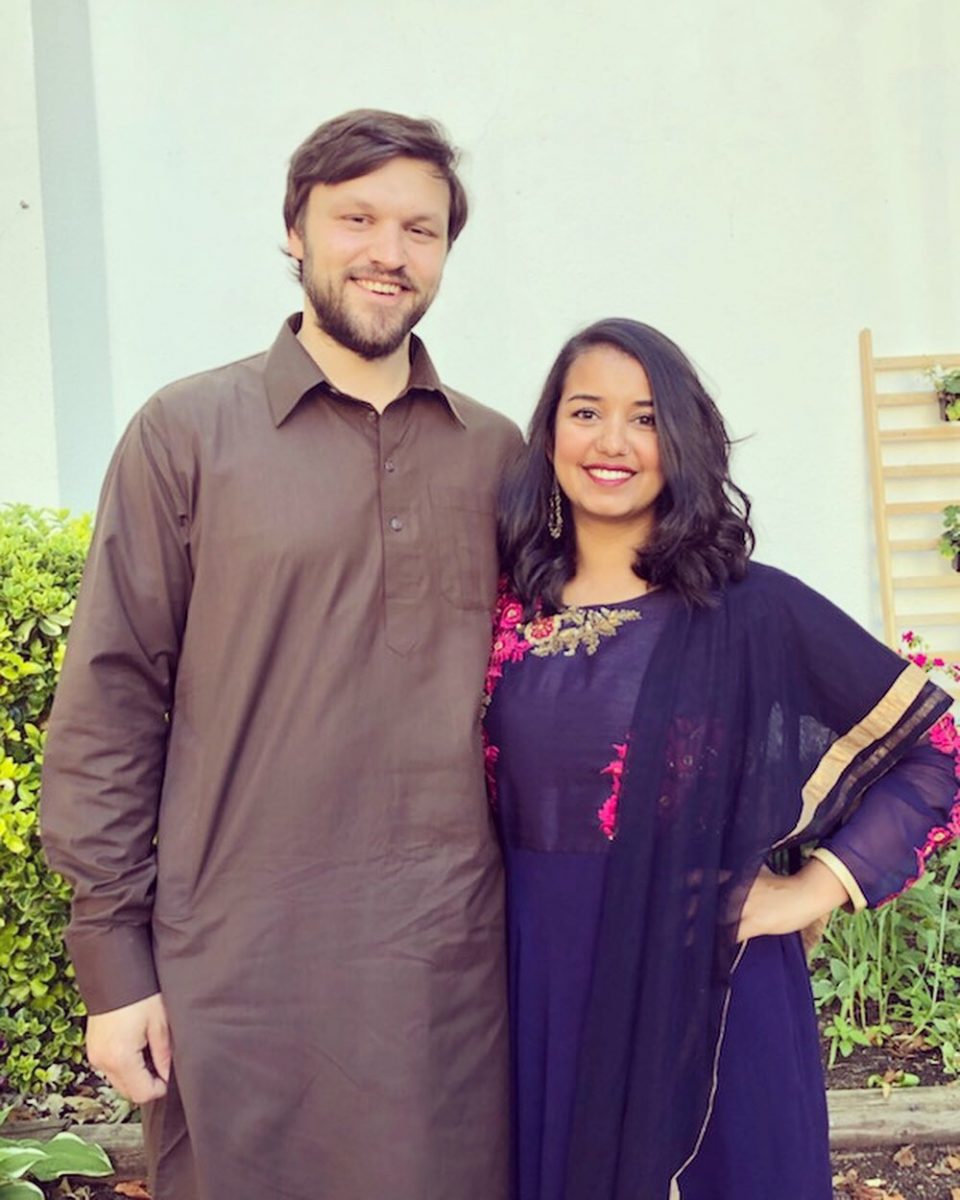
By: Nafissatou Ba & Fae Ehsan
Last week, Muslims worldwide began their annual observance of Ramadan, a month of spiritual fulfillment, discipline, charity, and abstaining from food from dawn to sunset. More than 200,000 Muslims call Philadelphia home, making our city among the top American cities for highest concentration of Muslims.
At Vetri Community Partnership, we are lucky to have two practicing Muslims on staff. Fae Ehsan and Nafissatou Ba share what Ramadan means to them, how they fast during the day, and what they eat during the month.
What is Ramadan and what does it represent?
Fae: Most simply, Ramadan is the ninth month in the Islamic calendar, observed by Muslims as a month of fasting, prayer, reflection, and community. The annual observance of Ramadan is part of the five pillars of Islam, and is obligatory for all adult Muslims who are able to fast. Muslims fast from all food and drink from dawn to sunset, eating a pre-sunrise meal called suhur and breaking their fast with a meal called iftaar.
Nafissatou: “Empty your stomach and feed your soul.” This is what Ramadan is about. Ramadan is the Holy month for Muslims, and it’s the month when the Quran was revealed. It is not only about bringing communities together, but also about finding yourself spiritually and increasing your good deeds such as giving to charity, helping people in need, and striving to be kind in all your interactions. Fasting also helps you empathize with people that do not have much to eat or drink. To me, Ramadan is resetting yourself to be the best version of yourself.
What does fasting entail?
Nafissatou: Muslims fast from Fajr (pre-dawn prayer) to Maghrib (sunset prayer). You cannot drink or eat anything during this time period, including water. Fasting also entails resetting your digestive system so it is recommended that you eat nutritious foods for suhur and iftaar. For pregnant people, people who are menstruating, some elderly, and people who are sick, it’s not obligatory to fast.
Fae: When the sun sets, Muslims are able to break their fast with food and drink. Since Islam is practiced globally, what Muslims eat to break their fast depends on their culture. However, it’s nearly universal that Muslims almost always eat a fresh or dried date to break their fast!
What do you eat for suhur and iftaar?

Fae: For suhur, since I’m preparing for over 12 hours without food or water, I try to eat things that are nutritious and filling. I will usually have oatmeal with peanut butter and honey, a hardboiled egg or two, some fresh fruit, and the most important thing: lots and lots of water! Since I don’t drink any water during the day, it’s so important to get your hydration early in the day. For iftaar, I break my fast with the traditional dried date, a small glass of lemonade, and a simple fruit salad that my mom makes. Since my family is Indian, I’ll also make potato and pea samosas for us! Other things we eat to break our fast is a simple salad of cucumber, red onion, tomatoes, and cilantro with a dressing of lemon juice, olive oil, salt, and pepper, and I will also make a big batch of chana masala—a South Asian chickpea curry—for us to reheat and break our fasts with. I usually will pray after iftaar, and then have a small dinner.
Nafissatou: I focus on protein heavy meals so my stomach is full for longer, but also because I do not want to lose any muscle mass. Few of my morning meals are: Greek yogurt with fruits, or eggs and bread; and for my evening meals: Merguez with fries and salad, lamb with plantains and tomato salad, chicken tacos, bricks (meat filled dough), or any stews from back home, Mali, such as Mafe, Nandji, or Soupou Kandja.
Do you have any family recipes you are looking forward to making?
Nafissatou: Mine is quite simple and different from other families in the West. When I came to the US, my Muslim friends would break their fast with a date and water. In my family however, we like to break our fast with a date, of course, but also with some hot tea: Lipton black tea with sugar and lemon or milk. It is quite a simple difference but it makes all the difference.
One particular meal I was looking forward when I lived back home is the day of Eid as we would butcher a whole sheep to celebrate. In the morning, we would have stewed sheep head, then for lunch we would grilled some ribs and we would always have French fries/plantains and salad; and for dinner, we would have some more sheep and vegetables. By the way, we do not eat the whole sheep in a day, we donate a lot to mosques, family, and to people in need.
Fae: Yes! I mentioned my mom’s fruit salad earlier. It’s my favorite thing to make and eat during Ramadan because she’s been making it for our family since my sisters and I were kids. It’s basically bananas, apples, grapes, oranges, and strawberries, cut up in relatively even sizes and dressed with a squeeze of fresh lemon, salt, pepper, and a little sugar, and garnished with fresh mint leaves! It’s sweet but tart, and so satisfying to eat after a long fast.

Are there any festivities to start or end Ramadan?

Fae: The end of Ramadan is marked by a three day celebration called Eid-al-Fitr. Under more normal circumstances, my family would usually wake up early and dress up to go to the mosque for Eid prayer. We’d exchange gifts and spend the day with friends and family and go to parties with yummy food! This year, with gathering restrictions still in place, my husband and I will celebrate at home together. We’ll make a nice dinner and have some close family over for a celebration. For me, biryani—an Indian dish of meat, fish, or vegetables cooked with rice in spices like cardamom, saffron, and turmeric—is a quintessential party dish that I’ll make for Eid-al-Fitr.
What can non-Muslims do to be respectful and supportive of my Muslim friends and colleagues during Ramadan?
Nafissatou: Educate yourself about Islam and Ramadan. Yes, Ramadan is about restricting from many “everyday” things, but it’s also so much more than that. It is about love, compassion, and empathy. I also love when my friends plan our outings around fasting hours!
Fae: I love when people wish me “Ramadan Mubarak” which translates to “Happy Ramadan!” and “Eid Mubarak” which is “Happy Eid!” Ramadan is also about gathering and family, and this is our second Ramadan with social distancing guidelines in place. If you have Muslim friends or colleagues who can’t be with family during this time, it can be helpful to check on them with encouraging words and sentiments.
